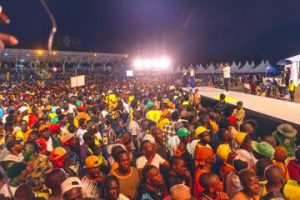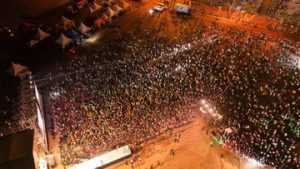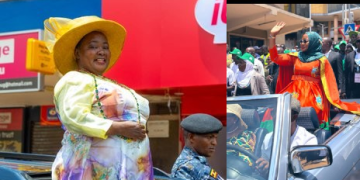Kampala woke up on Monday with a smile — and perhaps a touch of fatigue — after the Kololo Ceremonial Grounds exploded into colour, music, and excitement on Sunday, October 12, during the long-awaited Kampala City Festival 2025.
Organised by the Kampala Capital City Authority (KCCA) under the theme “Culture, Innovation, and Sustainability,” the festival returned after a seven-year hiatus, reclaiming its spot as Uganda’s biggest urban celebration. Judging by the energy on the streets, it was well worth the wait.
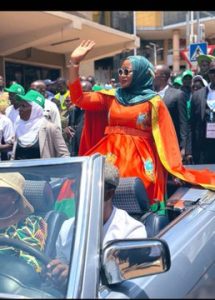
From ghetto youth and market vendors to schoolchildren and corporate executives, the crowds reflected Kampala’s vibrant diversity — all united in celebrating the heartbeat of the city.
The day began with a lively street procession from Buganda Road to Kololo, led by Prime Minister Rt. Hon. Robinah Nabbanja, who officiated as the Guest of Honour.
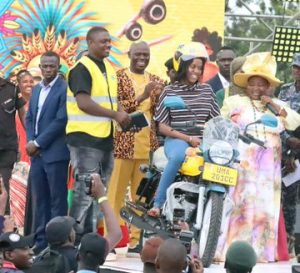
She was joined by KCCA Executive Director Hajjat Sharifah Buzeki, who arrived in regal style in a vintage car, waving to cheering crowds. Their presence underscored the leadership and vision behind reviving the festival as a platform to showcase Kampala’s creativity, culture, and resilience.
“Kampala City Festival is more than just a celebration; it highlights our transformation journey, attracts tourists, strengthens our cultural identity, and showcases Uganda as one of Africa’s best tourism and investment destinations,” said Prime Minister Nabbanja.
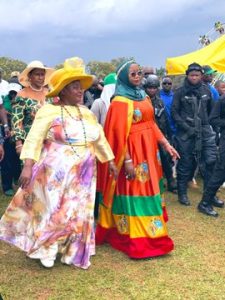
“Under the NRM government led by H.E. President Yoweri Kaguta Museveni, Kampala has undergone a significant transformation. As we implement our Tenfold Growth Strategy, we will expand our economy from USD 61.3 billion to USD 500 billion by 2040,” she added.
Traditional troupes, brass bands, and school performers turned the streets into a moving canvas of rhythm and dance, setting the tone for the festivities at Kololo, where thousands thronged the grounds.
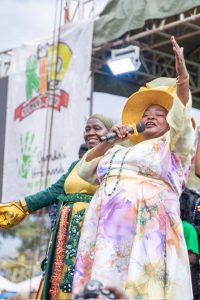
The venue was divided into vibrant zones catering to every age and taste. The Children’s Village buzzed with laughter and games; the Cultural Village offered a feast of Ugandan crafts, food, and traditions; and the Halal Village welcomed Muslim revellers.
Faith-based events also featured prominently, with a Christian stage at Hotel Africana hosting performances by Pastor Wilson Bugembe, Exodus, Gabi Ntate, Minister Rachael Kay, and the Watoto Children’s Choir, lifting spirits with songs of hope.
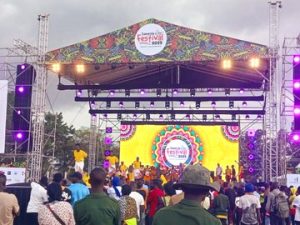
Music fans danced the day and night away as stars like Ava Peace, Vinka, Ykee Benda, Mudra Viral, Coco Finger, and Vyper Ranking kept Kololo alive with sound and movement.
The festival, which was free and open to all, provided a major economic boost for small traders and food vendors. Even a brief afternoon drizzle could not dampen the mood — if anything, it added to the fun as revellers danced joyfully in the rain.
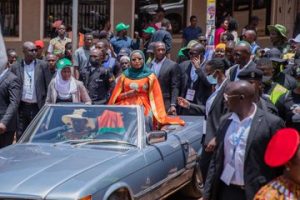
Security and crowd management were smooth throughout, thanks to the coordination between KCCA and national security agencies.
“This festival belongs to the people,” said Hajjat Buzeki. “It’s a reflection of our culture, creativity, and unity. Next year will be even bigger and better.”
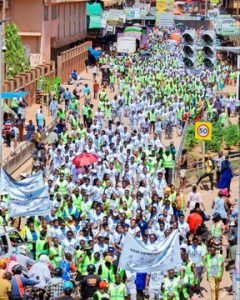
The Ministry of Tourism, Wildlife and Antiquities (MTWA) contributed UGX 200 million towards organising the festival, recognising its value to Uganda’s tourism sector.
“The Carnival has evolved into a premier urban cultural event,” the Ministry said in a statement. “Such events promote tourism, especially Meetings, Incentives, Conferences and Exhibitions (MICE), and encourage visitors to stay longer and spend more.”
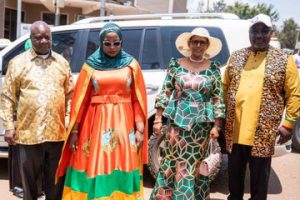
Adding to the diversity, refugees in Kampala showcased their creativity through dance and handmade artefacts at the festival, an initiative by UNHCR Uganda that highlighted inclusion and peaceful coexistence in the city.
As fireworks lit up the night sky, thousands stood shoulder to shoulder — a sea of smiles and waving flags — marking the end of a day that reminded everyone of what makes Kampala truly special.
